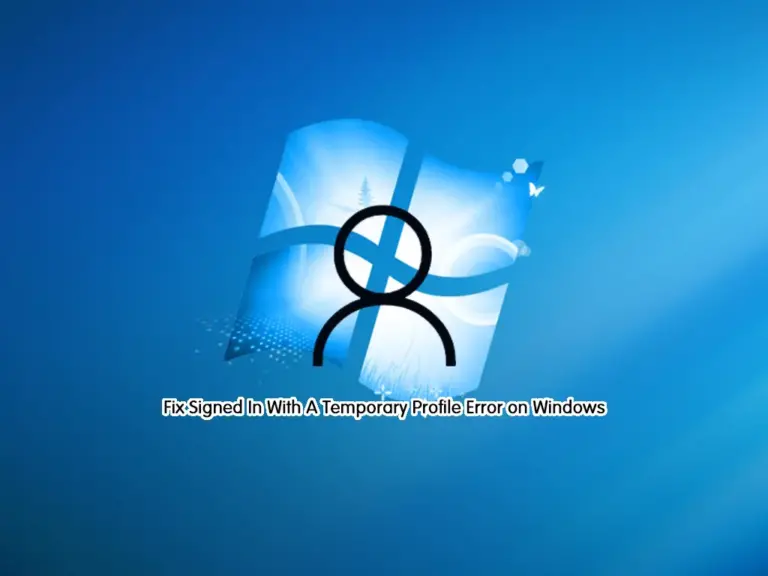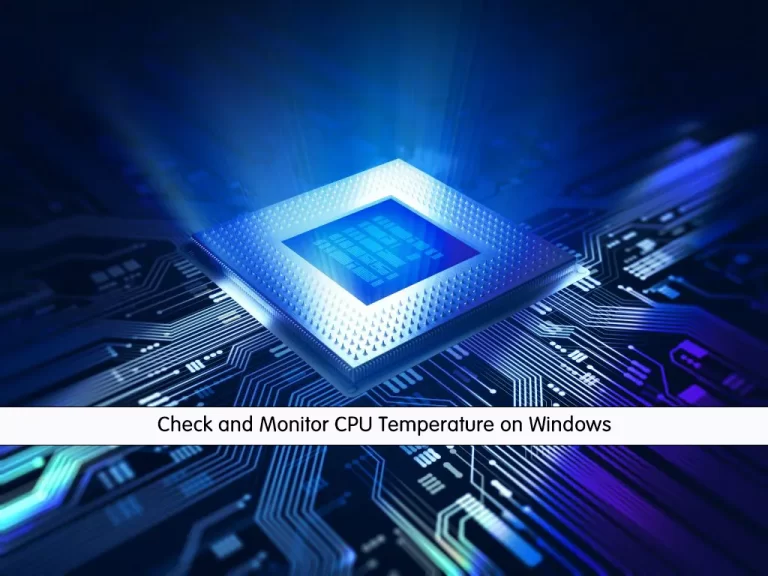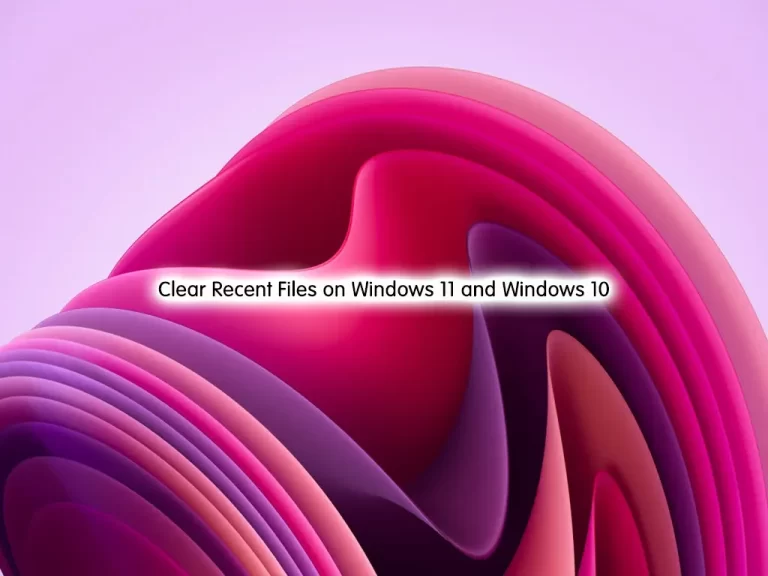Share your love
Best Ways to Configure Auto Shutdown on Windows 11
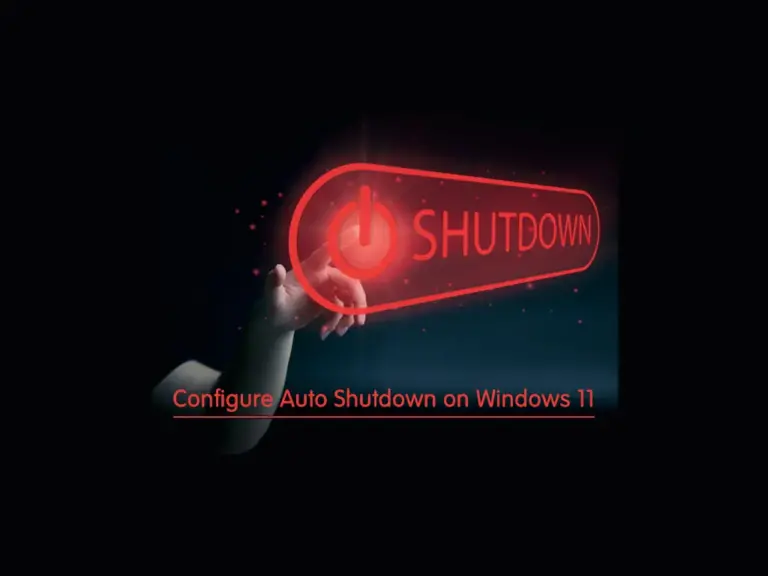
This guide intends to teach you to Configure Auto Shutdown on Windows 11. You can simply set up and schedule Windows 11 to shut down automatically. Also, you can disable or turn off this feature if you don’t want to use it anymore.
Auto Shutdown in Windows 11 is a feature that allows users to schedule their computer to automatically shut down at a specified time. This feature can be useful for different reasons, such as saving energy, completing tasks during off-hours, or ensuring the system shuts down after a certain period of inactivity.
Now you can follow the rest of the article to Configure Auto Shutdown on Windows 11.
Learn To Configure Auto Shutdown on Windows 11
You can easily log in to your Windows Client and use the following methods to Configure Auto Shutdown on Windows 11:
- Use Powershell
- Use Task Scheduler
Method 1 – Temporary Set up Shutdown Timer on Windows 11 via PowerShell
Set an Automatic Shutdown Timer with Powershell helps to set a temporary and single-use shutdown timer. To do this, open your Windows 11 Terminal:
Then, you can set a temporary shutdown timer on Windows 11 by using the following command:
shutdown -s -t timeInSecondsIn the above command, you need to put the desired time you want to shut down your system in seconds. For example, if you want to auto shutdown Windows after 60 minutes, then the command will be like this:
shutdown -s -t 3600Once you run the command, Windows will schedule a shutdown and display a notification.
Note: Once the timer runs out, it will display a warning asking you to save your work as the system is shutting down in a few seconds. There will be no cancelation option to abort the shutdown.
Method 2 – Regularly Set Windows 11 To Shutdown Automatically via Task Scheduler
This method is useful to auto shutdown Windows at a specific time regularly. To do this, search for the “Task Scheduler” in the start menu and open the app.
Then, click the “Create basic task” option.
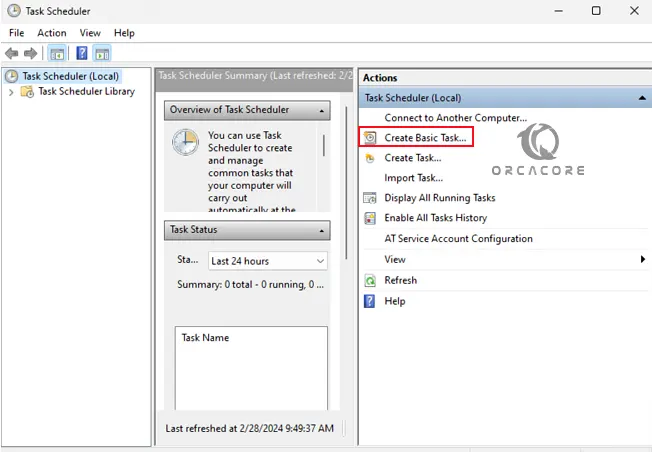
Next, enter a name & description for your task, and click “Next.”
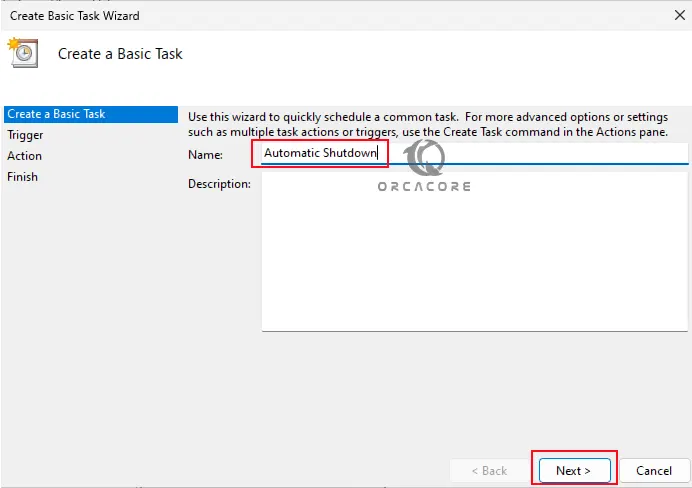
At this point, you need to select how often you want to repeat the task. In my case, I want to shutdown my Windows 11 daily. So, I chose the Daily option.
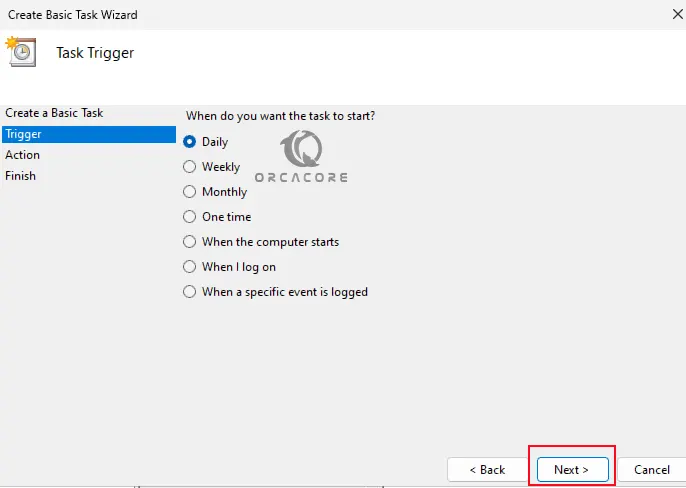
Next, enter the time and click Next. Since I want to shut down the system at noon, I’ve entered the appropriate time.
Note: If you use a 12-hour clock, don’t forget to select AM or PM. If you use a 24-hour clock, enter the time in 24-hour format.
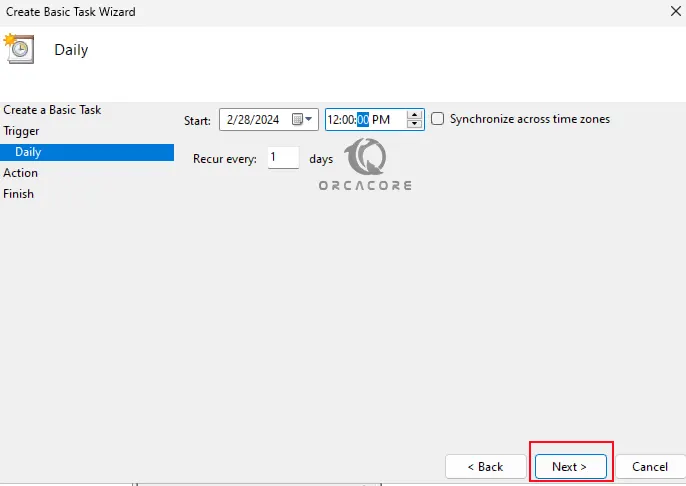
On the next page just select Start a program and click Next.
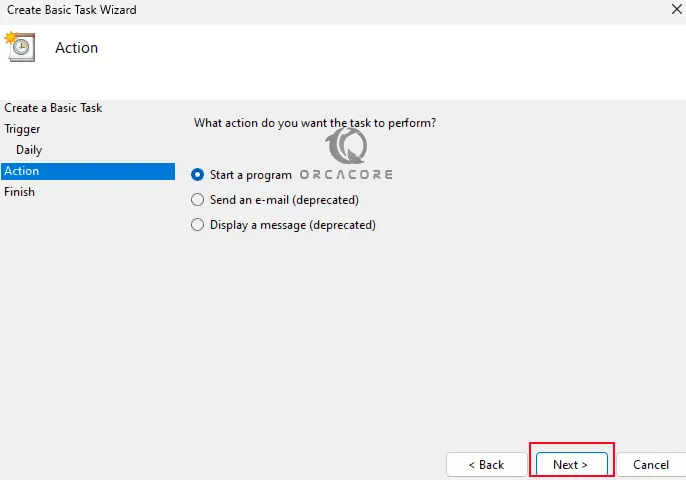
Now you need to enter shutdown.exe in the “Program/Script” field and /s in the “Add Arguments” field. Click “Next” to continue.

Finally, click “Finish” to complete the automatic shutdown task on Windows 11.
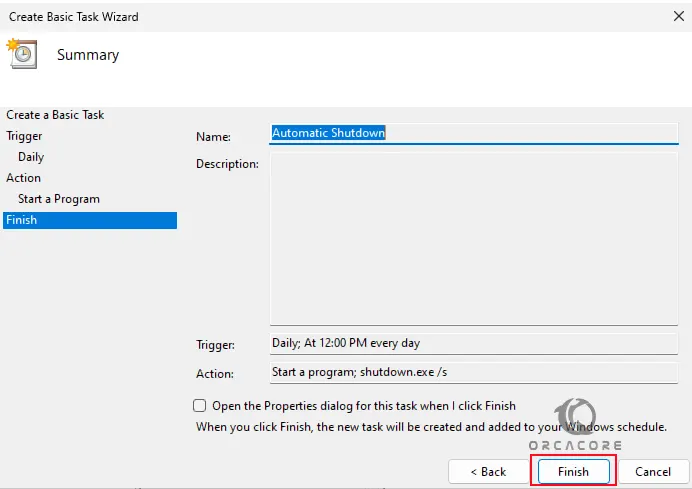
Once the task has been created, you will see it ready to be executed in the Task Scheduler Library.
If you want to test the scheduled task, save all your work, right-click on the task, and choose “Run.”
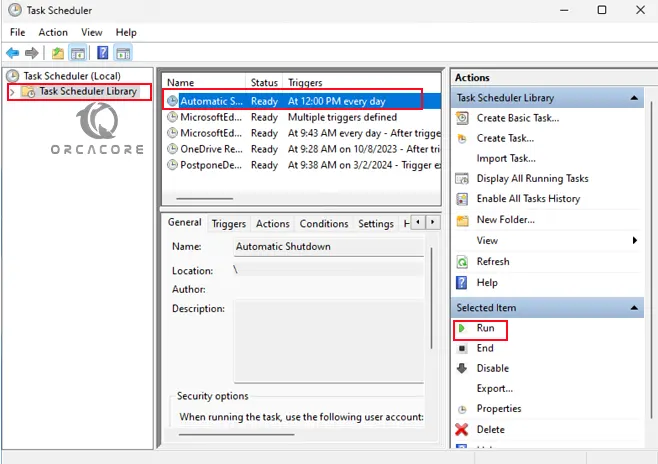
Turn Off Automatic Shutdown via Task Scheduler
If you no longer want Windows 11 to auto shutdown, right-click on the task and select “Disable.” This action will disable the task. You can also delete the task by selecting the “Delete” option.
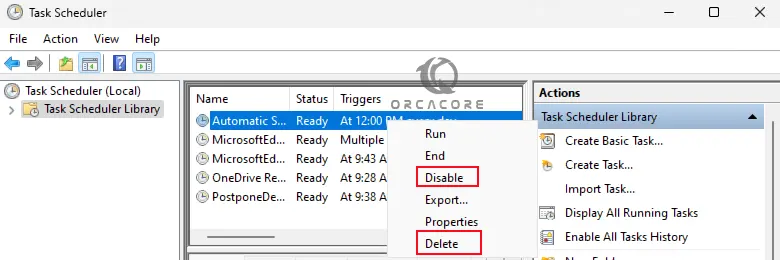
That’s it, you are done.
Conclusion
If you want to save energy, complete tasks during off-hours, or ensure the system shuts down after a certain period of inactivity, you can simply Configure Auto Shutdown on Windows 11 temporarily with PowerShell or Regularly with Task Scheduler.
Hope you enjoy it. Also, you may like to read the following articles:
Useful Commands For PowerShell – Cmdlets Examples

